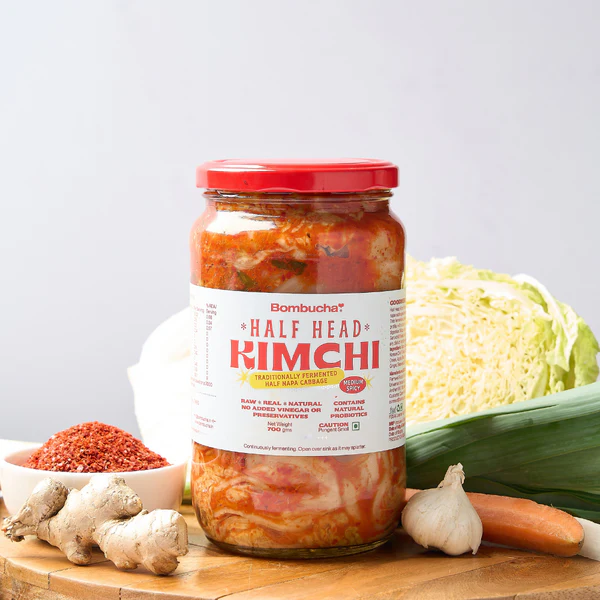Fermentation innovation promises longer shelf-life and less food waste in Kenya
An age-old preservation method is finding new purpose in Kenya — using kimchi, kombucha, and sauerkraut to extend shelf-life, reduce post-harvest losses, and deliver healthy food to communities with limited access to refrigeration.
By Shelmith Nelima
info@smartfarmerkenya.com
In Kenya, post-harvest food losses remain alarmingly high — especially for fresh produce that spoils quickly due to limited refrigeration in rural areas. According to the Food and Agriculture Organization (FAO), up to 45% of fruits and vegetables are lost before reaching consumers, costing farmers and the economy billions each year.
At the Kenya Meat Expo, one exhibitor drew curious crowds with an age-old technique offering a modern solution to this problem: fermentation. At her table, jars of kimchi, kombucha, and red sauerkraut stood proudly on display — colourful, aromatic, and rich in potential for food preservation.
Evelyn Wamboi, the entrepreneur behind the stall, explained that while fermentation is often praised for its health benefits, its role in extending shelf life and reducing food waste is just as powerful.
“Fermented food can last one to two years without refrigeration, and it stays safe and nutritious,” she said. “That means less waste, lower storage costs, and access to healthy food even in areas without electricity.”
Her products, made from cabbage, carrots, apples, ginger, and garlic, are prepared with 100% organic ingredients sourced from her own farm and nearby farmers. She uses Himalayan pink salt as a natural preservative and stores the mixture in airtight jars, where time does the rest.
The process, Evelyn says, is simple and adaptable:
- Harvest fresh ingredients.
- Prepare and mix with natural seasoning and Himalayan pink salt.
- Seal in jars to ferment over days or weeks.
- Store for long-term use — no fridge required.
This method not only retains nutrients but also increases food safety by preventing the growth of harmful bacteria. It offers a low-cost, low-tech storage solution for communities facing frequent power cuts or lacking refrigeration altogether.
Evelyn’s journey into fermentation began as a personal health quest. After suffering from persistent digestive problems, she turned to fermented foods and saw her symptoms improve within weeks. With a background in journalism and mass media, she decided to share both the health and sustainability potential of fermentation with a wider audience — blending Korean traditions with Kenyan produce to create a unique product line.
“This is more than a business to me,” she said. “It’s a way to improve health, cut waste, and create jobs. We buy jars locally, source ingredients from small farmers, and train others in the process.”
Beyond households, Evelyn sees fermentation as a viable strategy for food-insecure regions. In drought-hit or famine-prone areas, fermented foods could bridge the gap between harvest seasons, offering nutritious, ready-to-eat options that last far longer than fresh produce.
With rising consumer interest in natural, preservative-free, and sustainable foods, she believes the market for products like kimchi and kombucha will only grow. And with the right support, fermentation could move from a niche health trend to a mainstream solution for Kenya’s food waste challenge.



